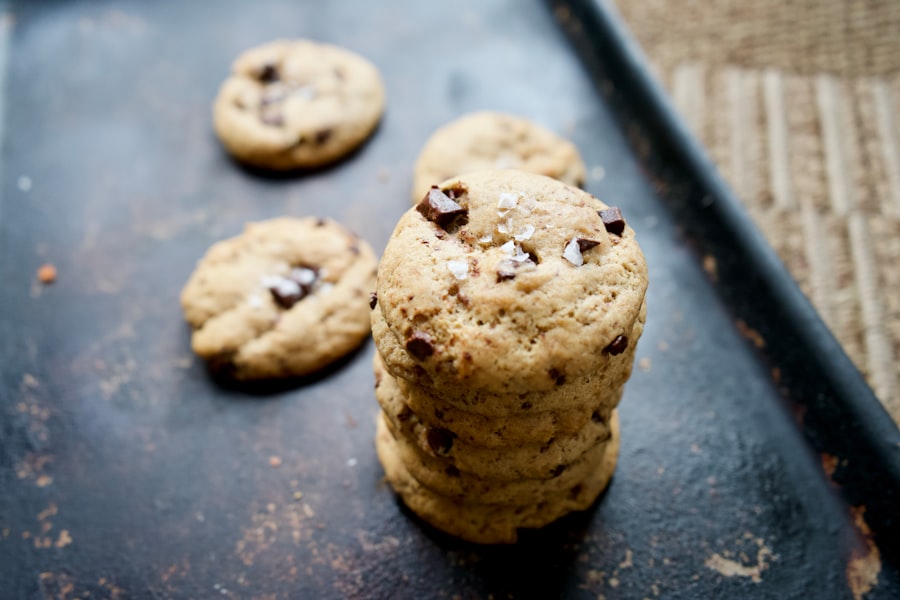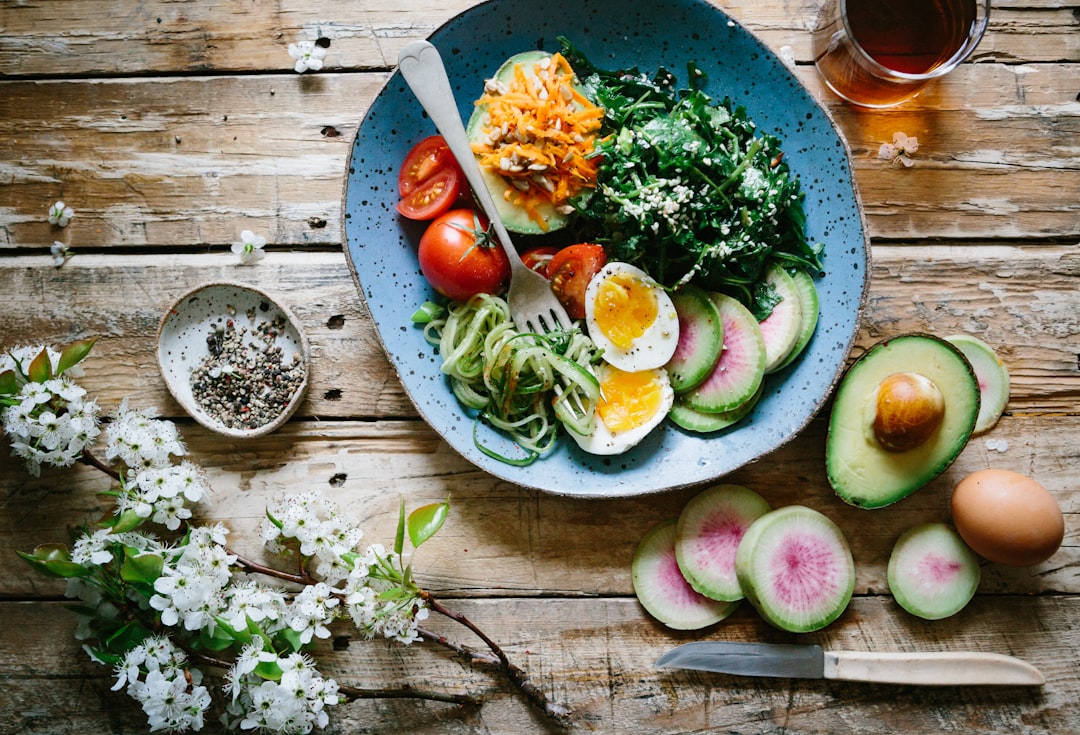As you age, maintaining cognitive function becomes increasingly important. Senior brain health is a multifaceted topic that encompasses various aspects of mental well-being, including memory, attention, and overall cognitive performance. You may find that the brain undergoes changes as you grow older, which can lead to challenges such as forgetfulness or slower processing speeds.
However, understanding how to support your brain health can empower you to take proactive steps toward preserving your cognitive abilities. Research has shown that lifestyle choices, including diet, exercise, and mental stimulation, play a significant role in brain health. You might be surprised to learn that what you eat can have a profound impact on your cognitive function.
Nutrient-rich foods can help protect your brain from age-related decline and even enhance your memory and focus. By incorporating specific brain-boosting ingredients into your meals, you can create a diet that not only nourishes your body but also supports your mind.
Key Takeaways
- Good nutrition is essential for maintaining senior brain health
- Blueberries and walnuts are beneficial for brain health and can be incorporated into oatmeal
- Salmon and avocado salad is a brain-boosting recipe rich in omega-3 fatty acids
- Spinach and mushroom frittata is a nutritious option for seniors to support brain health
- Turmeric and ginger carrot soup is a flavorful recipe that can help seniors maintain cognitive function
The Importance of Nutrition for Senior Brain Health
Nutrition is a cornerstone of maintaining optimal brain health as you age. The foods you consume provide the essential nutrients that your brain needs to function effectively. Omega-3 fatty acids, antioxidants, vitamins, and minerals are all crucial for supporting cognitive processes.
You may want to consider incorporating foods rich in these nutrients into your daily meals to help combat cognitive decline and promote overall brain health. Moreover, a balanced diet can help reduce the risk of chronic diseases that may negatively impact your cognitive function. For instance, conditions such as diabetes, hypertension, and heart disease have been linked to an increased risk of dementia and other cognitive impairments.
By prioritizing a diet rich in whole foods—such as fruits, vegetables, whole grains, lean proteins, and healthy fats—you can create a protective barrier against these diseases while simultaneously nourishing your brain.
Recipe 1: Blueberry and Walnut Oatmeal

Start your day with a delicious bowl of blueberry and walnut oatmeal. This recipe is not only easy to prepare but also packed with nutrients that are beneficial for your brain. Blueberries are known for their high antioxidant content, which can help combat oxidative stress and inflammation in the brain.
Walnuts, on the other hand, are an excellent source of omega-3 fatty acids, which are essential for maintaining cognitive function. To make this oatmeal, begin by cooking rolled oats according to package instructions. Once the oats are cooked, stir in a handful of fresh or frozen blueberries and a generous sprinkle of chopped walnuts.
You can sweeten it with a drizzle of honey or maple syrup if desired. This wholesome breakfast will not only keep you full but also provide your brain with the nutrients it needs to start the day on a positive note.
Recipe 2: Salmon and Avocado Salad
| Ingredients | Quantity |
|---|---|
| Salmon fillet | 200g |
| Avocado | 1 |
| Cherry tomatoes | 1 cup |
| Red onion | 1/4 cup |
| Lemon juice | 2 tbsp |
| Olive oil | 2 tbsp |
| Salt | To taste |
| Black pepper | To taste |
For lunch or dinner, consider whipping up a salmon and avocado salad. Salmon is renowned for its high omega-3 content, which has been linked to improved memory and cognitive function. Avocado adds a creamy texture while providing healthy fats that support brain health.
Together, these ingredients create a satisfying meal that is both nutritious and delicious. To prepare this salad, start by grilling or baking a salmon fillet until it’s cooked through. While the salmon is cooking, chop up some fresh greens like spinach or arugula and slice an avocado.
Once the salmon is ready, flake it into bite-sized pieces and toss it with the greens and avocado. Drizzle with olive oil and lemon juice for added flavor. This vibrant salad not only looks appealing but also delivers a powerful punch of nutrients that your brain will appreciate.
Recipe 3: Spinach and Mushroom Frittata
A spinach and mushroom frittata is an excellent option for breakfast or brunch that is both filling and nutritious. Eggs are a great source of choline, which is vital for memory and cognitive function. Spinach is loaded with vitamins and minerals that support overall brain health, while mushrooms provide antioxidants that help protect against neurodegeneration.
In a skillet, sauté chopped onions, spinach, and sliced mushrooms until they are tender. Pour the egg mixture over the vegetables and cook until the edges begin to set.
Finish it off by placing the skillet in the oven to broil until the top is golden brown. This dish is not only easy to prepare but also versatile; you can add other vegetables or cheese according to your preference.
Recipe 4: Quinoa and Vegetable Stir-fry

Quinoa is often hailed as a superfood due to its high protein content and essential amino acids. A quinoa and vegetable stir-fry makes for a quick and nutritious meal that can be customized with whatever vegetables you have on hand. This dish is not only colorful but also provides a variety of nutrients that support brain health.
To prepare this stir-fry, cook quinoa according to package instructions. In a separate pan, heat some olive oil and sauté your choice of vegetables—such as bell peppers, broccoli, and carrots—until they are tender-crisp. Add the cooked quinoa to the pan along with soy sauce or tamari for flavor.
Toss everything together until well combined. This dish is not only satisfying but also offers a wealth of nutrients that can help keep your mind sharp.
Recipe 5: Greek Yogurt Parfait with Berries and Nuts
For a healthy snack or dessert option, consider making a Greek yogurt parfait with berries and nuts. Greek yogurt is rich in protein and probiotics, which can support gut health—a factor that has been linked to brain health. Berries are packed with antioxidants that help protect your brain from oxidative stress, while nuts provide healthy fats that are essential for cognitive function.
To create this parfait, layer Greek yogurt in a glass with fresh berries such as strawberries, blueberries, or raspberries. Sprinkle a handful of nuts like almonds or walnuts on top for added crunch and nutrition. You can also drizzle some honey for sweetness if desired.
This simple yet delicious treat is not only visually appealing but also provides a wealth of nutrients that will benefit your brain.
Recipe 6: Sweet Potato and Black Bean Tacos
Sweet potatoes are an excellent source of complex carbohydrates and beta-carotene, both of which are beneficial for brain health. Pairing them with black beans creates a hearty taco filling that is rich in fiber and protein. These sweet potato and black bean tacos are not only flavorful but also easy to prepare.
To make these tacos, roast diced sweet potatoes in the oven until they are tender and slightly caramelized. In a separate pan, heat canned black beans until warmed through. Assemble your tacos by placing the roasted sweet potatoes and black beans in corn tortillas.
Top with avocado slices, salsa, or fresh cilantro for added flavor. These tacos make for a satisfying meal that will keep you energized throughout the day.
Recipe 7: Turmeric and Ginger Carrot Soup
Turmeric and ginger are both known for their anti-inflammatory properties, making them excellent additions to any diet focused on brain health. A turmeric and ginger carrot soup is not only comforting but also packed with nutrients that can help support cognitive function. To prepare this soup, sauté chopped onions in olive oil until they become translucent.
Add sliced carrots along with grated ginger and turmeric powder; cook until the carrots are tender. Pour in vegetable broth and let it simmer until all ingredients are well combined. Blend the soup until smooth for a creamy texture.
This vibrant soup is not only delicious but also offers numerous health benefits that can help keep your mind sharp.
Recipe 8: Chia Seed Pudding with Mixed Berries
Chia seeds are tiny powerhouses of nutrition; they are rich in omega-3 fatty acids, fiber, and antioxidants—all of which contribute to better brain health. A chia seed pudding topped with mixed berries makes for an easy breakfast or snack option that is both satisfying and nutritious. To make chia seed pudding, combine chia seeds with almond milk (or any milk of your choice) in a bowl or jar.
Stir well and let it sit in the refrigerator overnight to thicken. In the morning, top it with fresh mixed berries such as blueberries, strawberries, or raspberries for added flavor and nutrition. This simple recipe is not only delicious but also provides essential nutrients that support cognitive function.
Conclusion and Tips for Incorporating Brain-Boosting Recipes into Senior Diet
Incorporating brain-boosting recipes into your diet doesn’t have to be overwhelming; it can be an enjoyable journey toward better health. Start by gradually introducing these nutrient-rich meals into your weekly menu while exploring new ingredients that promote cognitive function. You might find it helpful to plan your meals ahead of time or even batch-cook some recipes so you always have healthy options on hand.
Additionally, consider involving family members or friends in meal preparation; cooking together can be a fun way to bond while promoting healthy eating habits. Remember that variety is key; aim to include different colors of fruits and vegetables in your meals to ensure you’re getting a wide range of nutrients beneficial for your brain health. By making conscious choices about what you eat, you can take significant steps toward maintaining your cognitive abilities as you age while enjoying delicious meals along the way.
For those interested in enhancing brain health through diet, exploring simple recipes can be a great start. A related article that delves into this topic can be found on Explore Senior Health. This resource provides valuable insights into how certain foods can support cognitive function and overall well-being in seniors. To learn more about these beneficial recipes and their impact on brain health, you can visit the article by clicking on this link.
WATCH THIS!🧠 The Breakfast Mistake That Fuels Senior Memory Loss
FAQs
What are some simple recipes for senior brain health?
Some simple recipes for senior brain health include dishes that are rich in omega-3 fatty acids, antioxidants, and vitamins, such as salmon with roasted vegetables, blueberry and spinach smoothies, and avocado and egg toast.
Why are omega-3 fatty acids important for senior brain health?
Omega-3 fatty acids are important for senior brain health because they help support cognitive function and may reduce the risk of developing dementia. They can be found in foods like fish, flaxseeds, and walnuts.
What are some foods rich in antioxidants that are beneficial for senior brain health?
Foods rich in antioxidants that are beneficial for senior brain health include berries, dark leafy greens, and colorful vegetables like bell peppers and tomatoes. These foods help protect the brain from oxidative stress and inflammation.
How can seniors incorporate these brain-healthy ingredients into their meals?
Seniors can incorporate brain-healthy ingredients into their meals by adding them to dishes they already enjoy, such as adding berries to oatmeal or yogurt, incorporating leafy greens into salads or smoothies, and using olive oil for cooking and dressing.
Are there any specific nutrients that seniors should focus on for brain health?
Seniors should focus on nutrients like omega-3 fatty acids, antioxidants (such as vitamins C and E), and B vitamins (such as folate and B12) for brain health. These nutrients can be found in a variety of foods including fish, fruits, vegetables, and whole grains.
